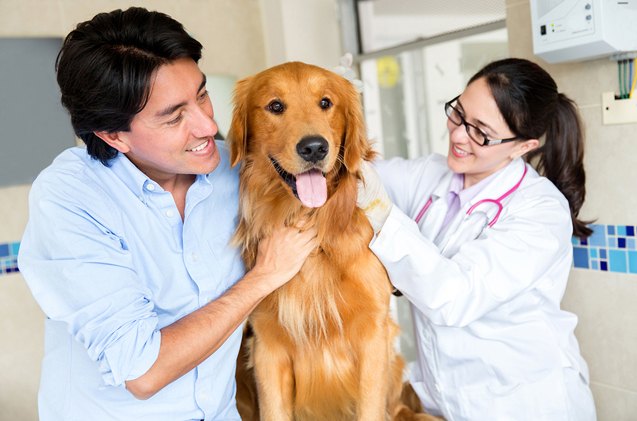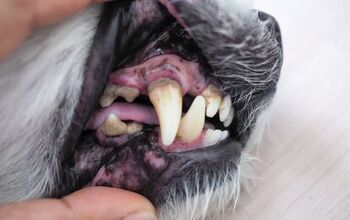New Canine Cancer Research Findings Could Benefit People, Too

The research team at MSU’s College of Veterinary Medicine started small, investigating the differences between healthy blood platelets and those from pooches that had developed cancer.
“We have a lot to gain by looking at platelets and how they influence cancer and healing,” says Dr. Camillo Bulla. “A part of our research is looking at the platelet. The platelet is very small, but it gives us a large picture. We hope to be able to find a tumor much sooner by taking a series of blood samples to look at platelet contents.”
Related: New Blood Test Helps Diagnose Canine Cancer
To spread, cancers need for new blood vessels to be created. The research team is looking at the way platelets interact with tumor cells as they try to spread throughout the body. They don’t yet know what exactly the platelets do for the metastasizing tumor, but it’s one of the questions they hope to answer through their work.
The lab has developed a new way to separate platelets from blood samples with much less contamination from other cells, a technique that’s superior to any other ever used by researchers in both human and veterinary medicine.
Related: Man And His Dog Walk 1200 Miles For Cancer
Now, the team at MSU has researchers from around the country reaching out to learn about their new platelet purification technique.
Thanks to their discovery, the team will be able to take the components of a normal, healthy platelet and compare them to platelets from dogs with cancer. From here, they’ll identify which proteins might play a role in the spread and growth of tumors.
Scientists doing research on cancer in humans will be able to use the same purification process to study human blood platelets and compare them to cancer platelets.
The species may be different, but the applications are the same.
The team hopes that one day, their research will make it possible to use a simple blood test to detect early cancer or signs of cancer metastasis.
“As veterinarians, we are focused on treating cancer in dogs and we get the bonus of also helping advance treatment of human cancers,” says Dr. Kari Lunsford.
[Source: Science Daily]

Christina Peden is a lifelong animal lover and avid wordsmith. She lives in Toronto with her boyfriend Ryan where they are proud pet parents to puppy, Matilda and cat, Oscar. In her spare time, she can be found enjoying Toronto, Canada's all-too-short patio season, taking advantage of the city's numerous parks or curled up with a good book.
More by Christina Peden






















